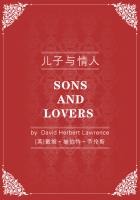THE WAR went on, successfully for the most part, but people had stopped saying "One more victory and the war is over," just as they had stopped saying the Yankees were cowards. It was obvious to all now that the Yankees were far from cowardly and that it would take more than one victory to conquer them. However, there were the Confederate victories in Tennessee scored by General Morgan and General Forrest and the triumph at the Second Battle of Bull Run hung up like visible Yankee scalps to gloat over. But there was a heavy price on these scalps. The hospitals and homes of Atlanta were overflowing with the sick and wounded, and more and more women were appearing in black. The monotonous rows of soldiers' graves at Oakland Cemetery stretched longer every day.
Confederate money had dropped alarmingly and the price of food and clothing had risen accordingly. The commissary was laying such heavy levies on foodstuffs that the tables of Atlanta were beginning to suffer. White flour was scarce and so expensive that corn bread was universal instead of biscuits, rolls and waffles.The butcher shops carried almost no beef and very little mutton, and that mutton cost so much only the rich could afford it. However there was still plenty of hog meat, as well as chickens and vegetables.
The Yankee blockade about the Confederate ports had tightened, and luxuries such as tea,coffee, silks, whalebone stays, colognes, fashion magazines and books were scarce and dear. Even the cheapest cotton goods had skyrocketed in price and ladies were regretfully making their old dresses do another season. Looms that had gathered dust for years had been brought down from attics, and there were webs of homespun to be found in nearly every parlor. Everyone, soldiers, civilians,women, children and negroes, began to wear homespun. Gray, as the color of the Confederate uniform, practically disappeared and homespun of a butternut shade took its place.
Already the hospitals were worrying about the scarcity of quinine, calomel, opium,chloroform and iodine. Linen and cotton bandages were too precious now to be thrown away when used, and every lady who nursed at the hospitals brought home baskets of bloody strips to be washed and ironed and returned for use on other sufferers.
But to Scarlett, newly emerged from the chrysalis of widowhood, all the war meant was a time of gaiety and excitement. Even the small privations of clothing and food did not annoy her, so happy was she to be in the world again.
When she thought of the dull times of the past year, with the days going by one very much like another, life seemed to have quickened to an incredible speed. Every day dawned as an exciting adventure, a day in which she would meet new men who would ask to call on her, tell her how pretty she was, and how it was a privilege to fight and, perhaps, to die for her. She could and did love Ashley with the last breath in her body, but that did not prevent her from inveigling other men into asking to marry her.
The ever-present war in the background lent a pleasant informality to social relations, an informality which older people viewed with alarm. Mothers found strange men calling on their daughters, men who came without letters of introduction and whose antecedents were unknown. To their horror, mothers found their daughters holding hands with these men. Mrs. Merriwether, who had never kissed her husband until after the wedding ceremony, could scarcely believe her eyes when she caught Maybelle kissing the little Zouave, Rene Picard, and her consternation was even greater when Maybelle refused to be ashamed. Even the fact that Rene immediately asked for her hand did not improve matters. Mrs.Merriwether felt that the South was heading for a complete moral collapse and frequently said so. Other mothers concurred heartily with her and blamed it on the war.
But men who expected to die within a week or a month could not wait a year before they begged to call a girl by her first name, with "Miss," of course, preceding it.Nor would they go through the formal and protracted courtships which good manners had prescribed before the war. They were likely to propose in three or four months. And girls who knew very well that a lady always refused a gentleman the first three times he proposed rushed headlong to accept the first time.
This informality made the war a lot of fun for Scarlett. Except for the messy business of nursing and the bore of bandage rolling, she did not care if the war lasted forever. In fact, she could endure the hospital with equanimity now because it was a perfect happy hunting ground. The helpless wounded succumbed to her charms without a struggle. Renew their bandages, wash their faces, pat up their pillows and fan them, and they fell in love. Oh, it was Heaven after the last dreary year!
Scarlett was back again where she had been before she married Charles and it was as if she had never married him, never felt the shock of his death, never borne Wade. War and marriage and childbirth had passed over her without touching any deep chord within her and she was unchanged. She had a child but he was cared for so well by the others in the red brick house she could almost forget him. In her mind and heart, she was Scarlett O'Hara again, the belle of the County. Her thoughts and activities were the same as they had been in the old days, but the field of her activities had widened immensely. Careless of the disapproval of Aunt Pitty's friends, she behaved as she had behaved before her marriage, went to parties, danced, went riding with soldiers, flirted, did everything she had done as a girl, except stop wearing mourning. This she knew would be a straw that would break the backs of Pittypat and Melanie. She was as charming a widow as she had been a girl, pleasant when she had her own way, obliging as long as it did not discommode her, vain of her looks and her popularity.
She was happy now where a few weeks before she had been miserable, happy with her beaux and their reassurances of her charm, as happy as she could be with Ashley married to Melanie and in danger. But somehow it was easier to bear the thought of Ashley belonging to some one else when he was far away. With the hundreds of miles stretching between Atlanta and Virginia, he sometimes seemed as much hers as Melanie's.
So the autumn months of 1862 went swiftly by with nursing, dancing, driving and bandage rolling taking up all the time she did not spend on brief visits to Tara. These visits were disappointing, for she had little opportunity for the long quiet talks with her mother to which she looked forward while in Atlanta, no time to sit by Ellen while she sewed, smelling the faint fragrance of lemon verbena sachet as her skirts rustled, feeling her soft hands on her cheek in a gentle caress.
Ellen was thin and preoccupied now and on her feet from morning until long after the plantation was asleep. The demands of the Confederate commissary were growing heavier by the month, and hers was the task of making Tara produce. Even Gerald was busy, for the first time in many years, for he could get no overseer to take Jonas Wilkerson's place and he was riding his own acres. With Ellen too busy for more than a goodnight kiss and Gerald in the fields all day, Scarlett found Tara boring. Even her sisters were taken up with their own concerns.Suellen had now come to an"understanding" with Frank Kennedy and sang "When This Cruel War Is Over" with an arch meaning Scarlett found well-nigh unendurable, and Carreen was too wrapped up in dreams of Brent Tarleton to be interesting company.
Though Scarlett always went home to Tara with a happy heart, she was never sorry when the inevitable letters came from Pitty and Melanie, begging her to return. Ellen always sighed at these times, saddened by the thought of her oldest daughter and her only grandchild leaving her.
"But I mustn't be selfish and keep you here when you are needed to nurse in Atlanta," she said. "Only, my darling, it seems that I never get the time to talk to you and to feel that you are my own little girl again before you are gone from me."
"I'm always your little girl," Scarlett would say and bury her head upon Ellen's breast,her guilt rising up to accuse her. She did not tell her mother that it was the dancing and the beaux which drew her back to Atlanta and not the service of the Confederacy. There were many things she kept from her mother these days. But,most of all, she kept secret the fact that Rhett Butler called frequently at Aunt Pittypat's house.
During the months that followed the bazaar, Rhett called whenever he was in town, taking Scarlett riding in his carriage, escorting her to danceables and bazaars and waiting outside the hospital to drive her home. She lost her fear of his betraying her secret, but there always lurked in the back of her mind the disquieting memory that he had seen her at her worst and knew the truth about Ashley. It was this knowledge that checked her tongue when he annoyed her. And he annoyed her frequently.
He was in his mid-thirties, older than any beau she had ever had, and she was as helpless as a child to control and handle him as she had handled beaux nearer her own age.He always looked as if nothing had ever surprised him and much had amused him and, when he had gotten her into a speechless temper, she felt that she amused him more than anything in the world. Frequently she flared into open wrath under his expert baiting, for she had Gerald's Irish temper along with the deceptive sweetness of face she had inherited from Ellen. Heretofore she had never bothered to control her temper except in Ellen's presence. Now it was painful to have to choke back words for fear of his amused grin. If only he would ever lose his temper too, then she would not feel at such a disadvantage.
After tilts with him from which she seldom emerged the victor she vowed he was impossible,ill-bred and no gentleman and she would have nothing more to do with him. But sooner or later, he returned to Atlanta, called, presumably on Aunt Pitty, and presented Scarlett, with overdone gallantry, a box of bonbons he had brought her from Nassau. Or preempted a seat by her at a musicale or claimed her at a dance, and she was usually so amused by his bland impudence that she laughed and overlooked his past misdeeds until the next occurred.
For all his exasperating qualities, she grew to look forward to his calls. There was something exciting about him that she could not analyze, something different from any man she had ever known. There was something breathtaking in the grace of his big body which made his very entrance into a room like an abrupt physical impact, something in the impertinence and bland mockery of his dark eyes that challenged her spirit to subdue him.
"It's almost like I was in love with him!" she thought, bewildered. "But I'm not and I just can't understand it."
But the exciting feeling persisted. When he came to call, his complete masculinity made Aunt Pitty's well-bred and ladylike house seem small, pale and a trifle fusty.Scarlett was not the only member of the household who reacted strangely and unwillingly to his presence, for her kept Aunt Pitty in a flutter and a ferment.
While Pitty knew Ellen would disapprove of his calls on her daughter, and knew also that the edict of Charleston banning him from polite society was not one to be lightly disregarded, she could no more resist his elaborate compliments and hand kissing than a fly can resist a honey pot. Moreover, he usually brought her some little gift from Nassau which he assured her he had purchased especially for her and blockaded in at risk of his life-papers of pins and needles, buttons, spools of silk thread and hairpins. It was almost impossible to obtain these small luxuries now-ladies were wearing hand-whittled wooden hairpins and covering acrons with cloth for buttons-and Pitty lacked the moral stamina to refuse them. Besides, she had a childish love of surprise packages and could not resist opening his gifts. And, having once opened them, she did not feel that she could refuse them. Then, having accepted his gifts, she could not summon courage enough to tell him his reputation made it improper for him to call on three lone women who had no male protector. Aunt Pitty always felt that she needed a male protector when Rhett Butler was in the house.
"I don't know what it is about him," she would sigh helplessly. "But-well, I think he'd be a nice, attractive man if I could just feel that-well, that deep down in his heart he respected women."
Since the return of her wedding ring, Melanie had felt that Rhett was a gentleman of rare refinement and delicacy and she was shocked at this remark. He was unfailingly courteous to her, but she was a little timid with him, largely because she was shy with any man she had not known from childhood. Secretly she was very sorry for him, a feeling which would have amused him had he been aware of it. She was certain that some romantic sorrow had blighted his life and made him hard and bitter, and she felt that what he needed was the love of a good woman. In all her sheltered life she had never seen evil and could scarcely credit its existence, and when gossip whispered things about Rhett and the girl in Charleston she was shocked and unbelieving. And, instead of turning her against him, it only made her more timidly gracious toward him because of her indignation at what she fancied was a gross injustice done him.
Scarlett silently agreed with Aunt Pitty. She, too, felt that he had no respect for any woman, unless perhaps for Melanie. She still felt unclothed every time his eyes ran up and down her figure. It was not that he ever said anything. Then she could have scorched him with hot words. It was the bold way his eyes looked out of his swarthy face with a displeasing air of insolence, as if all women were his property to be enjoyed in his own good time. Only with Melanie was this look absent. There was never that cool look of appraisal, never mockery in his eyes, when he looked at Melanie; and there was an especial note in his voice when he spoke to her, courteous, respectful, anxious to be of service.
"I don't see why you're so much nicer to her than to me,"said Scarlett petulantly, one afternoon when Melanie and Pitty had retired to take their naps and she was alone with him.
For an hour she had watched Rhett hold the yarn Melanie was winding for knitting, had noted the blank inscrutable expression when Melanie talked at length and with pride of Ashley and his promotion. Scarlett knew Rhett had no exalted opinion of Ashley and cared nothing at all about the fact that he had been made a major. Yet he made polite replies and murmured the correct things about Ashley's gallantry.
And if I so much as mention Ashley's name, she had thought irritably, he cocks his eyebrow up and smiles that nasty, knowing smile!
"I'm much prettier than she is," she continued, "and I don't see why you're nicer to her."
"Dare I hope that you are jealous?"
"Oh, don't presume!"
"Another hope crushed. If I am ‘nicer' to Mrs. Wilkes, it is because she deserves it. She is one of the very few kind, sincere and unselfish persons I have ever known. But perhaps you have failed to note these qualities. And moreover, for all her youth, she is one of the few great ladies I have ever been privileged to know."
"Do you mean to say you don't think I'm a great lady, too?"
"I think we agreed on the occasion of our first meeting that you were no lady at all."
"Oh, if you are going to be hateful and rude enough to bring that up again! How can you hold that bit of childish temper against me? That was so long ago and I've grown up since then and I'd forget all about it if you weren't always harping and hinting about it."
"I don't think it was childish temper and I don't believe you've changed. You are just as capable now as then of throwing vases if you don't get your own way. But you usually get your way now. And so there's no necessity for broken bric-a-brac."
"Oh, you are-I wish I was a man! I'd call you out and-"
"And get killed for your pains. I can drill a dime at fifty yards. Better stick to your own weapons-dimples, vases and the like."
"You are just a rascal."
"Do you expect me to fly into a rage at that? I am sorry to disappoint you. You can't make me mad by calling me names that are true. Certainly I'm a rascal, and why not?It's a free country and a man may be a rascal if he chooses. It's only hypocrites like you, my dear lady, just as black at heart but trying to hide it, who become enraged when called by their right names."
She was helpless before his calm smile and his drawling remarks, for she had never before met anyone who was so completely impregnable. Her weapons of scorn,coldness and abuse blunted in her hands, for nothing she could say would shame him. It had been her experience that the liar was the hottest to defend his veracity, the coward his courage, the ill-bred his gentlemanliness, and the cad his honor. But not Rhett. He admitted everything and laughed and dared her to say more.
He came and went during these months, arriving unheralded and leaving without saying good-by. Scarlett never discovered just what business brought him to Atlanta,for few other blockaders found it necessary to come so far away from the coast.They landed their cargoes at Wilmington or Charleston, where they were met by swarms of merchants and speculators from all over the South who assembled to buy blockaded goods at auction. It would have pleased her to think that he made these trips to see her, but even her abnormal vanity refused to believe this.If he had ever once made love to her, seemed jealous of the other men who crowded about her, even tried to hold her hand or begged for a picture or a handkerchief to cherish, she would have thought triumphantly he had been caught by her charms. But he remained annoyingly unloverlike and, worst of all, seemed to see through all her maneuverings to bring him to his knees.
Whenever he came to town, there was a feminine fluttering. Not only did the romantic aura of the dashing blockader hang about him but there was also the titillating element of the wicked and the forbidden. He had such a bad reputation! And every time the matrons of Atlanta gathered together to gossip, his reputation grew worse, which only made him all the more glamorous to the young girls. As most of them were quite innocent, they had heard little more than that he was "quite loose with women"-and exactly how a man went about the business of being "loose" they did not know. They also heard whispers that no girl was safe with him. With such a reputation, it was strange that he had never so much as kissed the hand of an unmarried girl since he first appeared in Atlanta. But that only served to make him more mysterious and more exciting.
Outside of the army heroes, he was the most talkedabout man in Atlanta. Everyone knew in detail how he had been expelled from West Point for drunkenness and"something about women." That terrific scandal concerning the Charleston girl he had compromised and the brother he had killed was public property. Correspondence with Charleston friends elicited the further information that his father, a charming old gentleman with an iron will and a ramrod for a backbone, had cast him out without a penny when he was twenty and even stricken his name from the family Bible. After that he had wandered to California in the gold rush of 1849 and thence to South America and Cuba, and the reports of his activities in these parts were none too savory. Scrapes about women, several shootings, gun running to the revolutionists in Central America and, worst of all,professional gambling were included in his career, as Atlanta heard it.
There was hardly a family in Georgia who could not own to their sorrow at least one male member or relative who gambled, losing money, houses, land and slaves. But that was different. A man could gamble himself to poverty and still be a gentleman,but a professional gambler could never be anything but an outcast.
Had it not been for the upset conditions due to the war and his own services to the Confederate government, Rhett Butler would never have been received in Atlanta. But now,even the most strait laced felt that patriotism called upon them to be more broad minded. The more sentimental were inclined to view that the black sheep of the Butler family had repented of his evil ways and was making an attempt to atone for his sins. So the ladies felt in duty bound to stretch a point,especially in the case of so intrepid a blockader. Everyone knew now that the fate of the Confederacy rested as much upon the skill of the blockade boats in eluding the Yankee fleet as it did upon the soldiers at the front.
Rumor had it that Captain Butler was one of the best pilots in the South and that he was reckless and utterly without nerves. Reared in Charleston, he knew every inlet,creek, shoal and rock of the Carolina coast near that port, and he was equally at home in the waters around Wilmington. He had never lost a boat or even been forced to dump a cargo. At the onset of the war, he had emerged from obscurity with enough money to buy a small swift boat and now, when blockaded goods realized two thousand per cent on each cargo, he owned four boats. He had good pilots and paid them well, and they slid out of Charleston and Wilmington on dark nights, bearing cotton for Nassau, England and Canada. The cotton mills of England were standing idle and the workers were starving, and any blockader who could outwit the Yankee fleet could command his own price in Liverpool. Rhett's boats were singularly lucky both in taking out cotton for the Confederacy and bringing in the war materials for which the South was desperate. Yes, the ladies felt they could forgive and forget a great many things for such a brave man.
He was a dashing figure and one that people turned to look at. He spent money freely,rode a wild black stallion, and wore clothes which were always the height of style and tailoring. The latter in itself was enough to attract attention to him, for the uniforms of the soldiers were dingy and worn now and the civilians, even when turned out in their best, showed skillful patching and darning. Scarlett thought she had never seen such elegant pants as he wore,fawn colored, shepherd's plaid, and checked. As for his waistcoats, they were indescribably handsome, especially the white wateredsilk one with tiny pink rosebuds embroidered on it. And he wore these garments with a still more elegant air as though unaware of their glory.
There were few ladies who could resist his charms when he chose to exert them, and finally even Mrs. Merriwether unbent and invited him to Sunday dinner.
Maybelle Merriwether was to marry her little Zouave when he got his next furlough, and she cried every time she thought of it, for she had set her heart on marrying in a white satin dress and there was no white satin in the Confederacy. Nor could she borrow a dress, for the satin wedding dresses of years past had all gone into the making of battle flags. Useless for the patriotic Mrs.Merriwether to upbraid her daughter and point out that homespun was the proper bridal attire for a Confederate bride. Maybelle wanted satin. She was willing,even proud to go without hairpins and buttons and nice shoes and candy and tea for the sake of the Cause, but she wanted a satin wedding dress.
Rhett, hearing of this from Melanie, brought in from England yards and yards of gleaming white satin and a lace veil and presented them to her as a wedding gift. He did it in such a way that it was unthinkable to even mention paying him for them, and Maybelle was so delighted she almost kissed him. Mrs. Merriwether knew that so expensive a gift-and a gift of clothing at that-was highly improper, but she could think of no way of refusing when Rhett told her in the most florid language that nothing was too good to deck the bride of one of our brave heroes. So Mrs. Merriwether invited him to dinner, feeling that this concession more than paid for the gift.
He not only brought Maybelle the satin but he was able to give excellent hints on the making of the wedding dress. Hoops in Paris were wider this season and skirts were shorter. They were no longer ruffled but were gathered up in scalloped festoons, showing braided petticoats beneath. He said, too, that he had seen no pantalets on the streets, so he imagined they were "out." Afterwards, Mrs.Merriwether told Mrs. Elsing she feared that if she had given him any encouragement at all, he would have told her exactly what kind of drawers were being worn by Parisiennes.
Had he been less obviously masculine, his ability to recall details of dresses, bonnets and coiffures would have been put down as the rankest effeminacy. The ladies always felt a little odd when they besieged him with questions about styles, but they did it nevertheless. They were as isolated from the world of fashion as shipwrecked mariners, for few books of fashion came through the blockade. For all they knew the ladies of France might be shaving their heads and wearing coonskin caps, so Rhett's memory for furbelows was an excellent substitute for Godey's Lady's Book. He could and did notice details so dear to feminine hearts, and after each trip abroad he could be found in the center of a group of ladies, telling that bonnets were smaller this year and perched higher, covering most of the top of the head, that plumes and not flowers were being used to trim them, that the Empress of France had abandoned the chignon for evening wear and had her hair piled almost on the top of her head, showing all of her ears, and that evening frocks were shockingly low again.
For some months, he was the most popular and romantic figure the town knew, despite his previous reputation, despite the faint rumors that he was engaged not only in blockading but in speculating on foodstuffs, too. People who did not like him said that after every trip he made to Atlanta, prices jumped five dollars. But even with this under-cover gossip seeping about, he could have retained his popularity had he considered it worth retaining. Instead, it seemed as though,after trying the company of the staid and patriotic citizens and winning their respect and grudging liking, something perverse in him made him go out of his way to affront them and show them that his conduct had been only a masquerade and one which no longer amused him.
It was as though he bore an impersonal contempt for everyone and everything in the South,the Confederacy in particular, and took no pains to conceal it. It was his remarks about the Confederacy that made Atlanta look at him first in bewilderment, then coolly and then with hot rage. Even before 1862 passed into 1863, men were bowing to him with studied frigidity and women beginning to draw their daughters to their sides when he appeared at a gathering.
He seemed to take pleasure not only in affronting the sincere and red-hot loyalties of Atlanta but in presenting himself in the worst possible light. When well-meaning people complimented him on his bravery in running the blockade, he blandly replied that he was always frightened when in danger, as frightened as were the brave boys at the front. Everyone knew there had never been a cowardly Confederate soldier and they found this statement peculiarly irritating. He always referred to the soldiers as "our brave boys" and "our heroes in gray" and did it in such a way as to convey the utmost in insult. When daring young ladies, hoping for a flirtation, thanked him for being one of the heroes who fought for them, he bowed and declared that such was not the case, for he would do the same thing for Yankee women if the same amount of money were involved.
Since Scarlett's first meeting with him in Atlanta on the night of the bazaar, he had talked with her in this manner, but now mere was a thinly veiled note of mockery in his conversations with everyone. When praised for his services to the Confederacy, he unfailingly replied that blockading was a business with him. If he could make as much money out of government contracts, he would say,picking out with his eyes those who had government contracts, then he would certainly abandon the hazards of blockading and take to selling shoddy cloth,sanded sugar, spoiled flour and rotten leather to the Confederacy.
Most of his remarks were unanswerable, which made them all the worse. There had already been minor scandals about those holding government contracts. Letters from men at the front complained constantly of shoes that wore out in a week, gunpowder that would not ignite, harness that snapped at any strain, meat that was rotten and flour that was full of weevils. Atlanta people tried to think that the men who sold such stuff to the government must be contract holders from Alabama or Virginia or Tennessee, and not Georgians. For did not the Georgia contract holders include men from the very best families? Were they not the first to contribute to the hospital funds and to the aid of soldiers' orphans? Were they not the first to cheer at "Dixie"and the most rampant seekers, in oratory at least, for Yankee blood? The full tide of fury against those profiteering on government contracts had not yet risen, and Rhett's words were taken merely as evidence of his own bad breeding.
He not only affronted the town with insinuations of venality on the part of men in high places and slurs on the courage of the men in the field, but he took pleasure in tricking the dignified citizenry into embarrassing situations. He could no more resist pricking the conceits, the hypocrisies and the flamboyant patriotism of those about him than a small boy can resist putting a pin into a balloon. He neatly deflated the pompous and exposed the ignorant and the bigoted, and he did it in such subtle ways, drawing his victims out by his seemingly courteous interest, that they never were quite certain what had happened until they stood exposed as windy, high flown and slightly ridiculous.
During the months when the town accepted him, Scarlett had been under no illusions about him. She knew that his elaborate gallantries and his florid speeches were all done with his tongue in his cheek. She knew that he was acting the part of the dashing and patriotic blockade runner simply because it amused him. Sometimes he seemed to her like the County boys with whom she had grown up, the wild Tarleton twins with their obsession for practical jokes: the devil-inspired Fontaines, teasing, mischievous; the Calverts who would sit up all night planning hoaxes. But there was a difference, for beneath Rhett's seeming lightness there was something malicious, almost sinister in its suave brutality.
Though she was thoroughly aware of his insincerity, she much preferred him in the role of the romantic blockader. For one thing, it made her own situation in associating with him so much easier than it had been at first. So, she was intensely annoyed when he dropped his masquerade and set out apparently upon a deliberate campaign to alienate Atlanta's good will. It annoyed her because it seemed foolish and also because some of the harsh criticism directed at him fell on her.
It was at Mrs.Elsing's silver musicale for the benefit of the convalescents that Rhett signed his final warrant of ostracism. That afternoon the Elsing home was crowded with soldiers on leave and men from the hospitals, members of the Home Guard and the militia unit, and matrons, widows and young girls. Every chair in the house was occupied, and even the long winding stair was packed with guests. The large cut-glass bowl held at the door by the Elsings' butler had been emptied twice of its burden of silver coins: That in itself was enough to make the affair a success, for now a dollar in silver was worth sixty dollars in Confederate paper money.
Every girl with any pretense to accomplishments had sung or played the piano, and the tableaux vivants had been greeted with flattering applause. Scarlett was much pleased with herself, for not only had she and Melanie rendered a touching duet, "When the Dew Is on the Blossom," followed as an encore by the more sprightly "Oh,Lawd, Ladies, Don't Mind Stephen!" but she had also been chosen to represent the Spirit of the Confederacy in the last tableau.
She had looked most fetching, wearing a modestly draped Greek robe of white cheesecloth girdled with red and blue and holding the Stars and Bars in one hand, while with the other she stretched out to the kneeling Captain Carey Ashburn, of Alabama, the gold-hilted saber which had belonged to Charles and his father.
When her tableau was over, she could not help seeking Rhett's eyes to see if he had appreciated the pretty picture she made. With a feeling of exasperation she saw that he was in an argument and probably had not even noticed her. Scarlett could see by the faces of the group surrounding him that they were infuriated by what he was saying.
She made her way toward them and, in one of those odd silences which sometimes fall on a gathering, she heard Willie Guinan, of the militia outfit, say plainly: "Do I understand, sir, that you mean the Cause for which our heroes have died is not sacred?"
"If you were run over by a railroad train your death wouldn't sanctify the railroad company,would it?" asked Rhett, and his voice sounded as if he were humbly seeking information.
"Sir," said Willie, his voice shaking, "if we were not under this roof-"
"I tremble to think what would happen," said Rhett. "For, of course, your bravery is too well known."
Willie went scarlet and all conversation ceased. Everyone was embarrassed. Willie was strong and healthy and of military age and yet he wasn't at the front. Of course, he was the only boy his mother had and, after all, somebody had to be in the militia to protect the state. But there were a few irreverent snickers from convalescent officers when Rhett spoke of bravery.
"Oh, why doesn't he keep his mouth shut!" thought Scarlett indignantly. "He's simply spoiling the whole party!"
Dr. Meade's brows were thunderous.
"Nothing may be sacred to you, young man," he said, in the voice he always used when making speeches. "But there are many things sacred to the patriotic men and ladies of the South. And the freedom of our land from the usurper is one and States' Rights is another and-"
Rhett looked lazy and his voice had a silky, almost bored, note.
"All wars are sacred," he said. "To those who have to fight them. If the people who started wars didn't make them sacred, who would be foolish enough to fight? But, no matter what rallying cries the orators give to the idiots who fight, no matter what noble purposes they assign to wars, there is never but one reason for a war. And that is money. All wars are in reality money squabbles. But so few people ever realize it. Their ears are too full of bugles and drums and the fine words from stay-at-home orators. Sometimes the rallying cry is ‘Save the Tomb of Christ from the Heathen!' Sometimes it's ‘Down with Popery!' and sometimes ‘Liberty!' and sometimes ‘Cotton, Slavery and States' Rights!' "
"What on earth has the Pope to do with it?" thought Scarlett. "Or Christ's tomb, either?"
But as she hurried toward the incensed group, she saw Rhett bow jauntily and start toward the doorway through the crowd. She started after him but Mrs. Elsing caught her skirt and held her.
"Let him go," she said in a clear voice that carried throughout the tensely quiet room. "Let him go. He is a traitor, a speculator! He is a viper that we have nursed to our bosoms!"
Rhett, standing in the hall, his hat in his hand, heard as he was intended to hear and,turning, surveyed the room for a moment. He looked pointedly at Mrs. Elsing's flat bosom, grinned suddenly and, bowing, made his exit.
Mrs.Merriwether rode home in Aunt Pitty's carriage, and scarcely had the four ladies seated themselves when she exploded.
"There now,Pittypat Hamilton! I hope you are satisfied!"
"With what?" cried Pitty, apprehensively.
"With the conduct of that wretched Butler man you've been harboring."
Pittypat fluttered, too upset by the accusation to recall that Mrs. Merriwether had also been Rhett Butler's hostess on several occasions. Scarlett and Melanie thought of this, but bred to politeness to their elders, refrained from remarking on the matter. Instead they studiously looked down at their mittened hands.
"He insulted us all and the Confederacy too," said Mrs. Merriwether, and her stout bust heaved violently beneath its glittering passementerie trimmings. "Saying that we were fighting for money! Saying that our leaders had lied to us! He should be put in jail. Yes, he should. I shall speak to Dr. Meade about it. If Mr. Merriwether were only alive, he'd tend to him! Now, Pitty Hamilton, you listen to me. You mustn't ever let that scamp come into your house again!"
"Oh," mumbled Pitty, helplessly, looking as if she wished she were dead. She looked appealingly at the two girls who kept their eyes cast down and then hopefully toward Uncle Peter's erect back. She knew he was listening attentively to every word and she hoped he would turn and take a hand in the conversation, as he frequently did. She hoped he would say: "Now, Miss Dolly, you let Miss Pitty be," but Peter made no move. He disapproved heartily of Rhett Butler and poor Pitty knew it. She sighed and said: "Well, Dolly, if you think-"
"I do think," returned Mrs. Merriwether firmly. "I can't imagine what possessed you to receive him in the first place. After this afternoon, there won't be a decent home in town that he'll be welcome in. Do get up some gumption and forbid him your house."
She turned a sharp eye on the girls. "I hope you two are marking my words," she continued,"for it's partly your fault, being so pleasant to him. Just tell him politely but firmly that his presence and his disloyal talk are distinctly unwelcome at your house."
By this time Scarlett was boiling, ready to rear like a horse at the touch of a strange rough hand on its bridle. But she was afraid to speak. She could not risk Mrs.Merriwether writing another letter to her mother.
"You old buffalo!" she thought, her face crimson with suppressed fury. "How heavenly it would be to tell you just what I think of you and your bossy ways!"
"I never thought to live long enough to hear such disloyal words spoken of our Cause," went on Mrs. Merriwether, by this time in a ferment of righteous anger. "Any man who does not think our Cause is just and holy should be hanged! I don't want to hear of you two girls ever even speaking to him again-For Heaven's sake, Melly, what ails you?"
Melanie was white and her eyes were enormous.
"I will speak to him again," she said in a low voice. "I will not be rude to him. I will not forbid him the house."
Mrs.Merriwether's breath went out of her lungs as explosively as though she had been punched. Aunt Pitty's fat mouth popped open and Uncle Peter turned to stare.
"Now, why didn't I have the gumption to say that?"thought Scarlett, jealousy mixing with admiration. "How did that little rabbit ever get up spunk enough to stand up to old lady Merriwether?"
Melanie's hands were shaking but she went on hurriedly, as though fearing her courage would fail her if she delayed.
"I won't be rude to him because of what he said, because-It was rude of him to say it out loud-most ill advised-but it's-it's what Ashley thinks. And I can't forbid the house to a man who thinks what my husband thinks. It would be unjust."
Mrs.Merriwether's breath had come back and she charged.
"Melly Hamilton, I never heard such a lie in all my life! There was never a Wilkes who was a coward-"
"I never said Ashley was a coward," said Melanie, her eyes beginning to flash. "I said he thinks what Captain Butler thinks, only he expresses it in different words. And he doesn't go around saying it at musicales, I hope. But he has written it to me."
Scarlett's guilty conscience stirred as she tried to recall what Ashley might have written that would lead Melanie to make such a statement, but most of the letters she had read had gone out of her head as soon as she finished reading them. She believed Melanie had simply taken leave of her senses.
"Ashley wrote me that we should not be fighting the Yankees. And that we have been betrayed into it by statesmen and orators mouthing catchwords and prejudices,"said Melly rapidly. "He said nothing in the world was worth what this war was going to do to us. He said here wasn't anything at all to glory-it was just misery and dirt."
"Oh! That letter," thought Scarlett. "Was that what he meant?"
"I don't believe it," said Mrs. Merriwether firmly. "You misunderstood his meaning."
"I never misunderstand Ashley," Melanie replied quietly, though her lips were trembling."I understand him perfectly. He meant exactly what Captain Butler meant, only he didn't say it in a rude way."
"You should be ashamed of yourself, comparing a fine man like Ashley Wilkes to a scoundrel like Captain Butler! I suppose you, too, think the Cause is nothing!"
"I-I don't know what I think," Melanie began uncertainly, her fire deserting her and panic at her outspokenness taking hold of her. "I-I'd die for the Cause, like Ashley would. But-I mean-I mean, I'll let the men folks do the thinking, because they are so much smarter."
"I never heard the like," snorted Mrs. Merriwether. "Stop, Uncle Peter, you're driving past my house!"
Uncle Peter,preoccupied with the conversation behind him, had driven past the Merriwether carriage block and he backed up the horse. Mrs. Merriwether alighted, her bonnet ribbons shaking like sails in a storm.
"You'll be sorry," she said.
Uncle Peter whipped up the horse.
"You young misses ought ter tek shame, gittin' Miss Pitty in a state," he scolded.
"I'm not in a state," replied Pitty, surprisingly, for less strain than this had frequently brought on fainting fits."Melly, honey, I knew you were doing it just to take up for me and, really, I was glad to see somebody take Dolly down a peg. She's so bossy. How did you have the courage? But do you think you should have said that about Ashley?"
"But it's true," answered Melanie and she began to cry softly. "And I'm not ashamed that he thinks that way. He thinks the war is all wrong but he's willing to fight and die anyway, and that takes lots more courage than fighting for something you think is right."
"Lawd, Miss Melly, doan cry hyah on Peachtree Street,"groaned Uncle Peter, hastening his horse's pace. "Folks'll talk sumpin' scan 'lous. Wait till us gits home."
Scarlett said nothing. She did not even squeeze the hand that Melanie had inserted into her palm for comfort. She had read Ashley's letters for only one purpose-to assure herself that he still loved her. Now Melanie had given a new meaning to passages in the letters which Scarlett's eyes had barely seen. It shocked her to realize that anyone as absolutely perfect as Ashley could have any thought in common with such a reprobate as Rhett Butler. She thought:"They both see the truth of this war, but Ashley is willing to die about it and Rhett isn't. I think that shows Rhett's good sense." She paused a moment, horror struck that she could have such a thought about Ashley. "They both see the same unpleasant truth, but Rhett likes to look it in the face and enrage people by talking about it-and Ashley can hardly bear to face it."
It was very bewildering.















